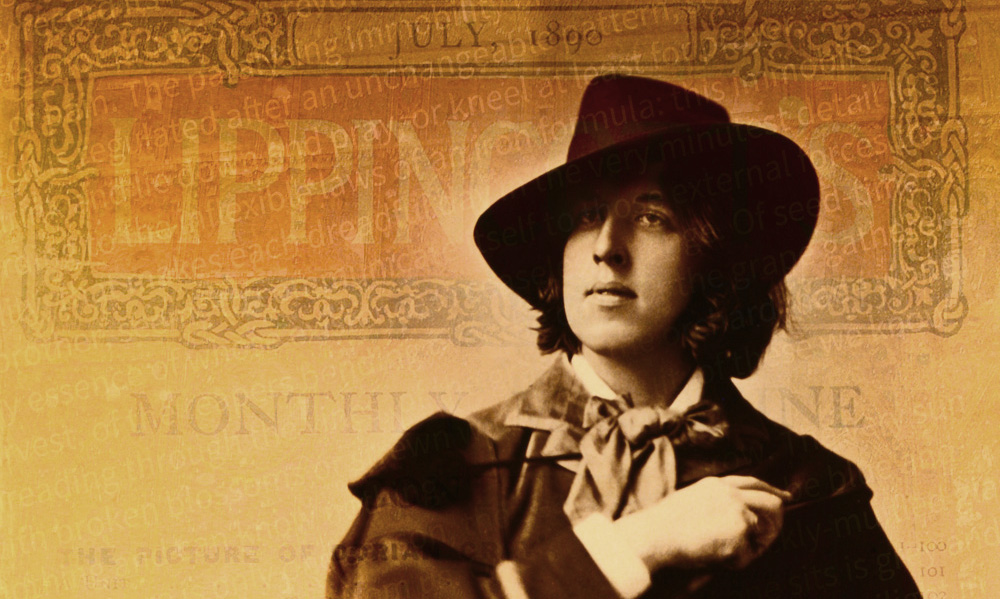REVERED FOR HIS PLAYS but reviled for his private life, flamboyant Irish poet Oscar Fingal O’Flahertie Wills Wilde – Oscar Wilde, to the literati – was never one for dull moments. Opium addict; bisexual; anti-establishment aesthete: the labels were many. But although he died destitute at 46, having been sentenced at the height of his fame to two years’ hard labour for ‘the love that dare not speak its name’, Wilde left behind him a legacy that, according to some of the capital’s resident poets, still resonates with the rebellious of soul today.
In 1890, writing his first and only novel, The Picture Of Dorian Gray, Wilde set forth his personal philosophy: how art should represent higher ideals, most notably the pursuit of pleasure and beauty. “It’s an astonishing piece of work; magic realism before its time,” says Tasmanian poet/writer/musician Scott Bywater, part of an Oscar Wilde night featuring film, live music and spoken word at Meta House. “It always makes me think of Jekyll & Hyde, running these same parallels: two sides, the dichotomy of human nature. It’s also the dichotomy of someone who could write the character of that Lady Havisham woman in The Importance Of Being Earnest: ‘A HAAAAANDBAAAAAG?!’ He was able to get in and satirise from the inside; that was the only way to be in the public eye at that time.”
Being in the public eye was indeed problematic, what with Wilde’s insatiable appetite for the taboo. But Antonio Pineda, a San Franciscan neobeat poet, insists there was method in his masochism. “What Wilde was really saying – and this goes for today – is that the white power elite are a bore: they’re boring, bigoted, small-minded, anti-intellectual people. And this so-called ‘miserable’ world of hard sex and hard drugs and hard drink is fascinating. As Aleister Crowley once said: ‘Do what thou wilt shall be the whole of the law.’ The fact he was anti-establishment in everything he did is very important today, when the establishment is so strong. I actually think there’s a connection between Thelema – Crowley’s philosophical/religious society – and the magic of the return of Oscar Wilde, which I wrote the poem Winged Bull about. The winged bull is an ancient Sumerian symbol, like Pegasus. For me, the winged bull is sensuality and intellect together. That’s what Oscar was.
The sage-like Scott Bywater nods slowly. “John Lennon is a similar figure: he was a pain in the arse during the 1970s, causing all sorts of disruption and then retreating. He could be criticised and you could be annoyed by him, but he was actually out there, doing some very interesting things, pushing the boundaries. There are those who desensitise themselves by dumbing down and there are those who try to wake themselves up by peeking through to the other side. That’s Dorian Gray, that’s Jekyll & Hyde and this is all pre-Freud; they don’t have the same psychological insights we have today. Here artists are at the front, trying to understand what it is to be human.
“And this, culturally/socially/temporally/geographically, is what artists do. Awash in the social soup, they confront the issues that arise from their developing awareness of who they are bumping against in the world they are in. So we struggle to be artists in the place we are in – just as Wilde did, just as Lennon did – and our self seeps into our work because it’s what drives our perception of it. Wilde is a reminder of the dangers of being an artist, just as he’s a reminder of the dangers of bourgeois society.”
WHO: Oscar Wilde aficionados
WHAT: Dorian Gray screening, with live blues music and spoken word by Antonio Pineda, Scott Bywater and Joe Cummings plus special guests
WHERE: Meta House, Sothearos Blvd.
WHEN: 6pm July 21
WHY: “If Oscar Wilde had been part of the beat movement, I think he would’ve been a blues and jazz man” – Antonio Pineda
